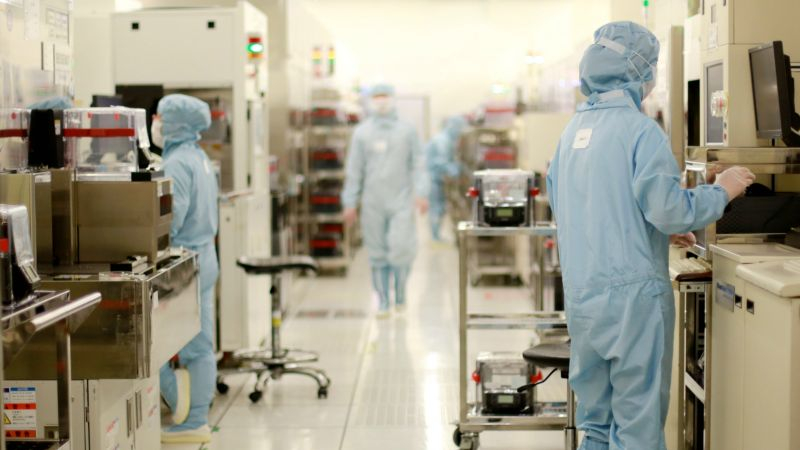Barclays analysts have recently predicted that in the next five to seven years, Chinese manufacturers will likely double their production of mature-process chips, increasing these volumes by 60% in the next three years. It is anticipated that Western competitors may struggle to withstand this onslaught, and not all regulatory tools may benefit them.
The growth concerns floated by Barclays have been echoed by Chris Miller, a Professor and author of the book “Chip War”. He agrees with other industry representatives that the rampant expansion of Chinese element base manufacturers in the coming years could result in an oversupply and market glut. While access to advanced lithographic technologies is denied to Chinese companies due to sanctions by the USA and its allies, they are actively ramping up the production of simple chips which are not subject to these sanctions.
In their recent quarterly report, TSMC leadership recognized the global risk of mature chip overproduction, but argued that it doesn’t pose a direct threat to TSMC’s business. According to CEO C.C. Wei, TSMC not only customizes mature lithography processes to meet specific customer needs, making manufacturer-switching problematic, but also signs long-term contracts ensuring stable profits. Therefore, TSMC isn’t fearing competition from Chinese manufacturers and will continue to expand its production capacities.
Professor Miller elucidated that the “Chinese invasion” will not equally impact all semiconductor market segments. In the automotive sector, long-term contracts established after the pandemic-induced chip supply crisis make it difficult for Chinese manufacturers to lure customers away from foreign competitors. Regulating the supply of Chinese origin chips seems challenging due to the vast assortment and significant market turnover. Thus, Miller leans towards the idea of selectively limiting the access of Chinese chips to Western markets for safety reasons. Certain countries might completely block access to products using Chinese components. This principle is already in use in the defense sector, and may extend to medical technology and electric cars, although the latter, due to their prevalence and electronic saturation, are unlikely to be completely prohibited from using Chinese components.
Western countries may continue to pressure Chinese manufacturers via access to chip manufacturing equipment, simply expanding the scope of sanctions if necessary. While the USA and Japan tend to cite national security in their battles against Chinese suppliers, Europe aims to use market forces as a countermeasure where appropriate and possible.





